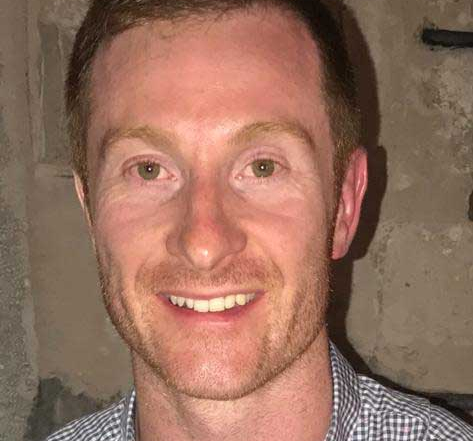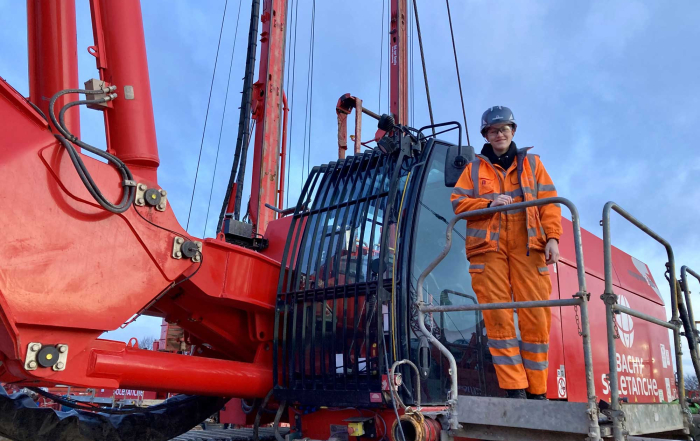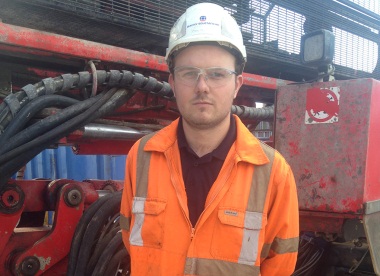In this Insider Update, we chat to Bachy Soletanche CAD Technician, Vicky Hill, who shares the highs and lows of her time in the construction industry, what it was like to follow in her father’s footsteps, and how mastering jigsaw puzzles has been crucial to her success.
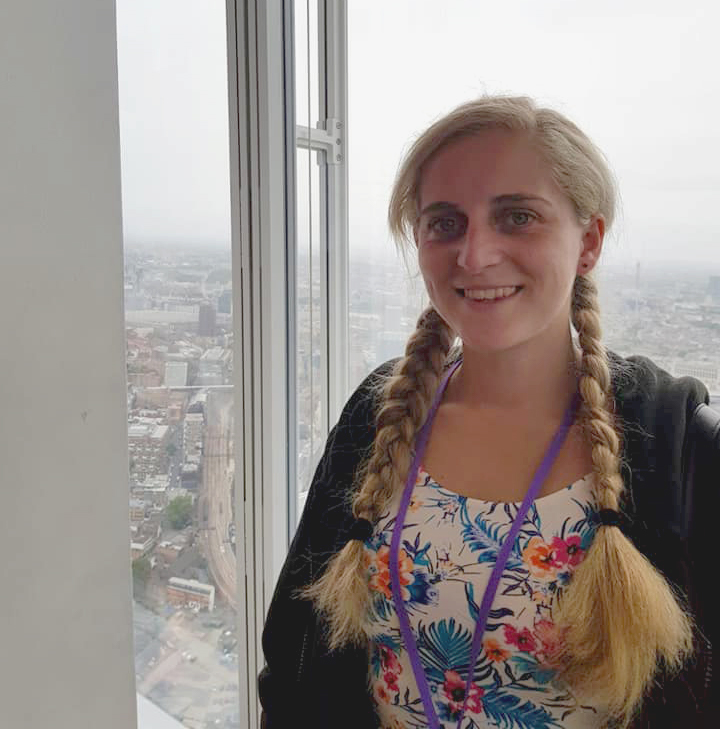
What is a CAD Technician?
As a CAD (Computer-aided Design) Technician, I basically draw all the structural designs that are used on site to be able to deliver our projects. I work closely with the Design Engineers, who work out the calculations and our minimum requirements for the structures, before I then visualise our design in a drawing and essentially bring it to life.
What inspired you to pursue a career in engineering?
My dad has been a CAD Technician for most of his career, so it was him that inspired me to get into this field. When I was growing up, I remember seeing my dad’s designs on the drawing board he had at home (Before computers were used) and asking him questions about what he was doing. Sometimes he would also take me into his office where I’d get to see him work. He was always supportive when I showed an interest in engineering, but he was never pushing me to pursue a career in the field, which I think is the best approach.
A trainee position then arose at my dad’s company and I was successful; I think it was a case of being in the right place at the right time. I’m aware that at this point in my career, it was partially down to ‘who I knew’, more than just ‘what I knew’, but from then on, I worked very hard to become successful in my own right.
Part of the intrigue of coming to Bachy Soletanche was that it was one of the few companies in the industry where my dad hadn’t worked. As grateful as I am to my dad for helping me into this career, moving to Bachy Soletanche was great for me as I had always been known as ‘Charlie’s daughter’. As no one knew my dad here, I was able to break away from that and make a name for myself, which felt really good.
Although this is a skilled role, having the right mindset is vital. You will succeed as long as you are passionate to learn and ask questions
Did you need any specific qualifications to be a CAD Technician?
No, I have learned most of what I know on the job, although I did decide to complete a Level 3 BTEC in Construction Technologies. This wasn’t mandatory at all but was something I chose to study so I could fully understand how buildings and the industry worked.
It’s not uncommon for CAD Technicians to be able to start from the bottom with no background knowledge and learn on the job, because especially when I was starting out, there wasn’t a specific CAD Tech college course that you could study.

What does a typical day at work look like?
Currently, my work is heavily revolved around designing the reinforced concrete elements for piles on HS2. Each morning I come in, check over the design specification and the design template, and then use this to help me draw up a pile. I send the pile design to the engineers for approval, where there is usually some back and forth between us both to ensure the drawing is 100% correct.
What do you enjoy doing outside of work?
I enjoy reading but I spend most of my free time with the army cadets as a Cadet Force Adult Volunteer. It’s a volunteering role that involves working with and teaching teenagers the values of the military, but in a way that is suitable for young adults. It’s really rewarding as it offers a stable place for those from disadvantaged backgrounds to grow and learn. We teach them important life skills like time management, how to be self-sufficient and even how to make their bed…
Tell me about some of the best projects you’ve worked on.
At Bachy Soletanche, I’ve worked on two major projects so far: HS2 and the Thames Tideway Tunnel. I prefer the major projects to the smaller scale work, as for the smaller projects, each one only requires one or two drawings. The major projects are more consistent, each week you know what work is coming and what you need to get done, which makes it easier to meet deadlines.

What’s the most rewarding part of your job?
I love visiting site and seeing what I’ve drawn come to life – it’s the best part of what I do. Occasionally, it’s great to leave the office, get into the fresh air – as long as it’s not raining – and see what I’ve helped design, go into the ground.
What skills are essential to succeeding as a CAD Technician?
While you do need to understand maths, the level you need really depends on the specific role. Some roles in the industry only require a basic or GCSE level of maths, but if you can, it really helps to have as much maths knowledge as possible.
This might sound unusual, but another skill I think really helps is being good at jigsaw puzzles. To finish a jigsaw, you have to use your imagination, which is an incredibly important skill to have as a CAD Technician. In my role, you have a 2D drawing in front of you, but you need to use your imagination to visualise this in 3D to ensure everything aligns and makes sense. It’s the same with jigsaws – you need to be able to see beyond what is in front of you and visualise the end product, which is a skill that lends itself really well to my role. Many people think working in engineering is just numbers, but in this line of work, having a visual eye is just as important.
The issue seems to be that schools aren’t teaching children about all of the available options and there is no specific college course for this line of work. If we don’t find a way to attract more young people into CAD Tech roles now, we risk losing an entire generation and not having enough people to employ within the UK.
Where else has your career taken you so far?
I have had a few roles within the CAD Technician field, including working as a Post Tensioning Specialist. Post Tensioning is essentially an alternative way to reinforce concrete and so the drawings and skills required are a little bit different.
At Bachy Soletanche, I’ve been doing Reinforced Concrete (RC) detailing and I’m currently doing a bit of General Arrangements (GA) work. GA work involves drawing up the visual layout of a project, including specifying where the piles are going to be placed.
There are so many different positions available in the industry that don’t involve being on site and especially as a CAD Technician, the type of work I do can vary so much from one day to the next, which keeps it interesting.
Have you faced any challenges throughout your time in the industry?
Being a woman in the industry can be great, but it can also be a hinderance at times. At the last company I worked, there was a male employee who openly voiced his sexist opinions about women’s role in society. Towards the end of my time there, there were less and less women at the company, so I felt more alone, and his comments were harder to brush off. It got to the point where every day there would be sexist remarks made, which wasn’t helped by the fact that we didn’t really have a HR department to reach out to. Ultimately, this was one of the main reasons I left the company and came here. Fortunately, from what I’ve heard, it seems like experiences like this are now a rarity and it’s clear that the industry has really improved regarding diversity and inclusion over recent years.
In comparison, Bachy Soletanche is very welcoming to women. On-site roles have traditionally been quite male dominated and so I naturally stick out more on site due to my gender. However, there is a good gender balance in the office and in my CAD team specifically there is a 50/50 gender split.
How have you seen the gender balance change throughout your time in the industry?
A lot of companies nowadays are very concerned with how they are perceived with regards to diversity, which can have its pros and cons. It’s great that companies are trying to be more inclusive, but sometimes they’re trying to force diversity because of it, and this worries me.
As I am involved in both the construction industry and the army cadets, which are both very male dominated spaces, it’s important to me that I succeed because I am good at what I do, not because I’m a woman. It can be very damaging if diversity becomes a simple box ticking exercise to make a company appear more progressive. I know this is something that Bachy Soletanche is working hard to avoid.
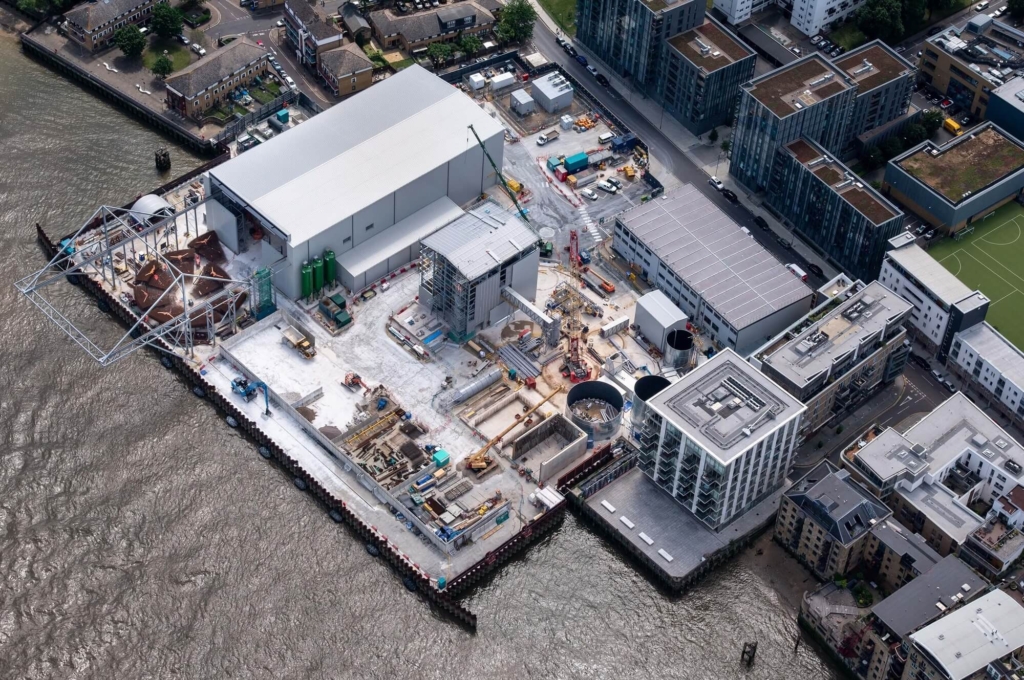
How do you think that the industry’s gender balance could be improved in a more organic way?
I think it isn’t as simple as just hiring more women, as there aren’t always enough women applying for roles in the first place. This disparity begins much earlier on at school where there is a huge disproportion of young women choosing STEM (Science, Technology, Engineering and Maths) subjects at A Level or Higher Education – there could be more done to improve this.
I remember we had a careers workshop at my school and in the booklet we were given highlighting the available career paths, it listed two possible jobs in construction: ‘construction worker’ or ‘project manager’ – that was it. Not advertising the huge variety of different roles available in construction beyond site-based positions is going to put off a lot of young people from considering a career in the industry. It’s no surprise that there is still a significant gender imbalance in the industry and that so few people are aware of roles like mine.
Do you think that without your dad there to make you aware of this role, that you would have ever discovered it yourself?
100% no. I would never have known this role existed without my dad.
When I tell people what I do, most of them have no idea what a CAD Technician is. It seems to be a bit of a dying breed, with most CAD Technicians now over the age of 50, which is very concerning. Therefore, it’s more important than ever to increase awareness among younger generations about the numerous different construction roles on offer, especially the lesser-known ones like mine.
The issue seems to be that schools aren’t teaching children about all of the available options and there is a lack of specialised college courses for this line of work. If we don’t find a way to attract more young people into CAD Tech roles now, we risk losing an entire generation and not having enough people to employ within the UK.
And finally, what advice would you give to someone considering a similar career?
Although this is a skilled role, having the right mindset is vital. You will succeed as long as you are passionate to learn and ask questions. I’d also advise you take as much as you can from those you work with; there is so much you can learn from them.
To go down this career path, it does help to have a STEM background, but it isn’t always essential, so don’t be put off. Most importantly, practice your jigsaw puzzles!
